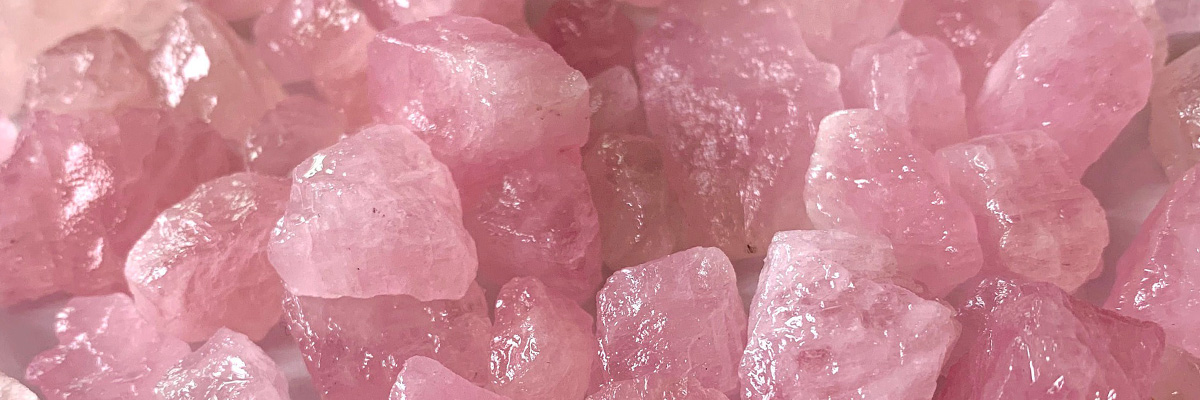Morganite is a variety of beryl, a beryllium aluminum cyclosilicate mineral, known for its delicate pink to peach color. Morganite belongs to the hexagonal crystal system, forming prismatic or elongated hexagonal crystals with pinacoidal terminations. These crystals exhibit a vitreous luster and can be found in granitic pegmatites and hydrothermal veins, as well as in certain metamorphic rocks.
Usage
Morganite is a highly desirable gemstone for its delicate color and excellent durability. It is often used in various types of jewelry, such as rings, necklaces, earrings, and bracelets. The gentle hues of morganite make it an elegant and timeless choice for those seeking a sophisticated and unique gemstone for their jewelry collection.
Gemstone
Morganite is an alluring gemstone prized for its delicate pink to peach hues, which are attributed to the presence of manganese impurities in the crystal lattice. The gemstone’s vitreous luster and excellent durability make it a popular choice for jewelry enthusiasts. Morganite can be cut into various shapes and faceted designs, enhancing its versatility and appeal in the world of jewelry design.
Origin
Morganite forms through various geological processes, including the crystallization of magma in granitic pegmatites and hydrothermal veins, as well as the metamorphism of rocks rich in beryllium, aluminum, and silica. The presence of manganese impurities in the crystal lattice gives morganite its characteristic pink color.
Occurrence
Morganite can be found in numerous locations worldwide, alongside other beryl varieties. Notable deposits of morganite have been discovered in Brazil, Madagascar, Afghanistan, Mozambique, and the United States. These regions provide diverse geological environments that are conducive to the formation of morganite crystals.
Metaphysical
In metaphysical and spiritual practices, morganite is believed to possess a range of properties, including promoting love, compassion, and emotional healing. The mineral is said to help individuals release old emotional wounds and foster a sense of self-worth and self-love. Additionally, morganite is considered a stone of divine love, helping its wearer to connect with their higher self and attract loving relationships.
| Class | Cyclosilicates |
| Formula | Be3Al2Si6O18 (Mn) |
| Luster | Vitreous |
| Hardness (Mohs) | 7.5 – 8 |
| Streak | White |
| Color | Pink, peach, yellowish-pink |
| Cleavage | Imperfect in one direction |
| Specific Gravity | 2.6 – 2.9 |


